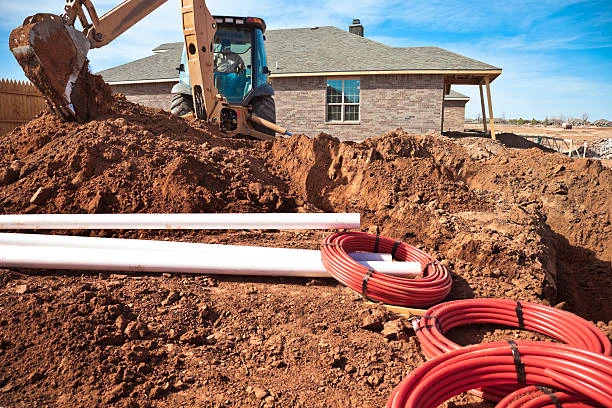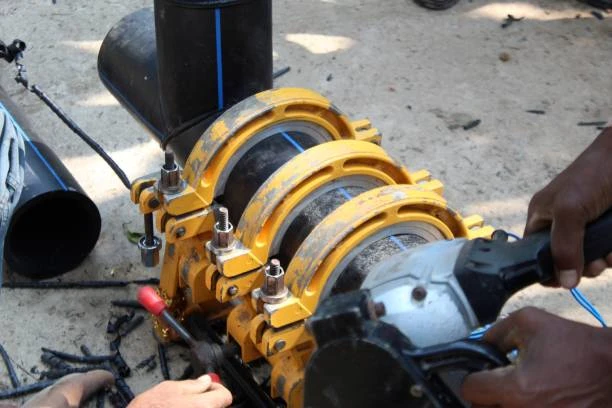Water Pipe In a recent announcement, city officials in Atlanta revealed that the water pipes that broke during a significant infrastructure failure were nearly 100 years old. This revelation has sparked discussions about the state of aging water infrastructure across the city and the urgent need for upgrades and replacements. Water pipes are essential for delivering clean water to homes and businesses, and their deterioration poses risks to public health and safety. This article will explore the implications of aging water pipes, the necessity of infrastructure investments, and the steps Atlanta is taking to address these challenges.
Understanding the Aging Water Pipe Infrastructure
Water pipes are critical components of any urban infrastructure. They are responsible for transporting potable water from treatment plants to households and businesses. Over time, however, these pipes can deteriorate due to various factors, including age, corrosion, and environmental conditions. In Atlanta, many of the water pipes are approaching or have surpassed their expected lifespan, leading to frequent breaks and leaks.
The Impact of Aging Water Pipe
The consequences of aging water pipes can be severe. When pipes break, they can cause:
- Water Quality Issues: Old pipes can leach harmful substances into the water supply, compromising its safety and quality. This is particularly concerning for residents who rely on the municipal water supply for drinking and cooking.
- Service Disruptions: Water main breaks can lead to significant service disruptions, leaving residents without access to water for extended periods. This can impact daily activities, from cooking to sanitation.
- Increased Maintenance Costs: As pipes age, the frequency of breaks and leaks increases, leading to higher maintenance costs for the city. Taxpayer dollars are often used to cover these expenses, which could be better invested in proactive infrastructure upgrades.
- Environmental Concerns: Water leaks not only waste a precious resource but can also lead to soil erosion and other environmental issues. This is especially problematic in urban areas where water runoff can contribute to flooding.
The Recent Break: Water Pipe A Wake-Up Call
The recent break in Atlanta’s water pipes serves as a wake-up call for city officials and residents alike. The incident highlighted the urgent need for a comprehensive assessment of the city’s water infrastructure. City officials reported that the broken pipes were nearly 100 years old, emphasizing the need for immediate action to prevent similar incidents in the future.
Community Water Pipe Response
Residents have expressed concerns about the aging infrastructure and its potential impact on public health and safety. Community meetings have been organized to discuss the situation, and many residents are calling for increased transparency and accountability from city officials. The recent break has raised awareness about the importance of investing in modern, durable infrastructure that can withstand the test of time.
The Importance of Water Pipe Replacement
Replacing aging water pipes is essential for several reasons:
- Improving Water Quality: New pipes made from modern materials can significantly improve water quality by preventing contamination and leaks.
- Enhancing System Reliability: Upgrading the infrastructure will reduce the likelihood of breaks and leaks, ensuring a consistent water supply for residents.
- Reducing Costs: While the initial investment in new pipes may be substantial, the long-term savings from reduced maintenance and repairs can be significant.
- Promoting Sustainability: Modern water pipes are often designed with sustainability in mind, using materials that minimize environmental impact and promote water conservation.
Steps Atlanta Is Taking to Water Pipe Address Infrastructure Challenges
In response to the recent break and the ongoing issues with aging infrastructure, Atlanta city officials are taking several steps to address these challenges:

Comprehensive Assessment
The city is conducting a thorough assessment of its water infrastructure to identify critical areas in need of replacement. This assessment will help prioritize projects and allocate resources effectively.
Increased Funding for Infrastructure Projects
City officials are advocating for increased funding for water infrastructure projects. This includes seeking state and federal grants to support necessary upgrades and replacements.
Community Engagement
Engaging with the community is a priority for city officials. Public meetings and outreach efforts are being organized to keep residents informed about the status of infrastructure projects and to gather feedback on community needs.
Implementation of Modern Technologies
As part of the infrastructure upgrade plan, Atlanta is exploring the implementation of modern technologies to monitor water quality and detect leaks more efficiently. Advanced monitoring systems can provide real-time data, allowing for quicker responses to potential issues.
Collaboration with Local Organizations
The city is partnering with local organizations and experts to develop a comprehensive strategy for upgrading water infrastructure. This collaboration aims to leverage best practices and innovative solutions to address the challenges posed by aging pipes.
The Role of Residents in Infrastructure Improvement
While city officials play a crucial role in addressing infrastructure challenges, residents also have a part to play. Here are some ways residents can contribute:
- Stay Informed: Residents should stay informed about local infrastructure projects and participate in community meetings to voice their concerns and opinions.
- Report Issues: If residents notice leaks or other water-related issues, they should report them to the city promptly. Quick reporting can help mitigate damage and improve response times.
- Advocate for Investment: Residents can advocate for increased funding and support for water infrastructure projects by reaching out to local representatives and participating in advocacy efforts.
- Practice Water Conservation: By conserving water at home, residents can help reduce the strain on the existing infrastructure and promote sustainable practices within the community.
Conclusion
The recent water pipe break in Atlanta serves as a stark reminder of the challenges posed by aging infrastructure. With pipes nearing 100 years old, the city faces significant risks to water quality and reliability. However, with a commitment to proactive assessment, funding, and community engagement, Atlanta can take meaningful steps toward upgrading its water infrastructure. Investing in modern, durable water pipes is essential for ensuring a safe and reliable water supply for residents and promoting the long-term sustainability of the city’s resources.
FAQs
1. Why are the water pipes in Atlanta so old?
Many of Atlanta’s water pipes were installed nearly a century ago, and over time. They have deteriorated due to age, corrosion. And environmental factors.
2. What are the risks associated with aging water pipes?
Aging water pipes can lead to water quality issues, service disruptions. Increased maintenance costs, and environmental concerns due to leaks and breaks.
3. How is the city addressing the issue of aging water infrastructure?
Atlanta is conducting a comprehensive assessment of its water infrastructure. Advocating for increased funding, engaging with the community. And implementing modern technologies for monitoring and maintenance.
4. How can residents help improve water infrastructure in Atlanta?
Residents can stay informed, report water-related issues, advocate for investment in infrastructure. And practice water conservation to support the city’s efforts.
5. What materials are used for new water pipes?
New water pipes are typically made from modern, durable materials designed to resist corrosion and withstand pressure. Ensuring long-term reliability and safety.


















